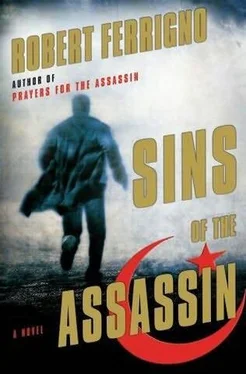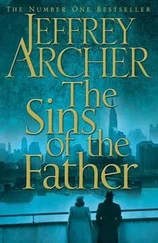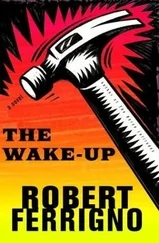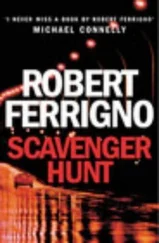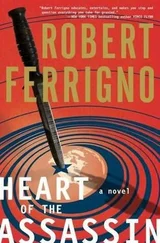Leo and Winthrop were drinking coffee when Rakkim walked through the door. Leo knocked over his chair and ran to him, hugged him, crying.
“What’s his problem?” Rakkim said to Winthrop as Leo clung to him.
“He’s got sense, that’s his problem,” said Winthrop.
“O ye of little faith,” chided Rakkim, squeezing Leo until he yelped.
“I still can’t believe I was asleep in there for fourteen hours,” said Rakkim, driving with one hand. “I looked at my watch in the church and thought it was six in the evening.”
“Mr. Winthrop…Clyde and I stayed up all night waiting for you to come back,” said Leo. “Every half hour one of us would walk along the edge of the coal field with a searchlight, calling your name. Clyde gave up on you, said no one could survive that long in the smoke, but I knew if anybody could…Well, I figured you might have gotten lucky.”
“Thanks, Leo.”
“I didn’t do anything.”
“Yeah, you did.”
Leo blushed, the red rising from his neck into his cheeks.
They had left Addington after breakfast, had been driving for almost two hours, right into the Tennessee mountains, the rugged terrain rising steadily as the day wore on, the road hemmed in by pine trees now.
“I read all the briefing notes on the Belt before we left Seattle,” said Leo. “Classified and unclassified. Never heard of this Malcolm Crews and the End-Times Army.”
“If it’s in a briefing paper, it’s old news, out-of-date and unreliable. You’re going to be fine, just do what we talked about.”
Leo shifted in his seat. “Clyde said Malcolm Crews is a total psycho.”
“Malcolm Crews believes he’s been touched by the hand of God.” Rakkim grinned. “I can work with that. I think so, anyway.”
“Tell me again about what the church was like.” Leo sensed Rakkim’s resistance. “Please?”
“It was…quiet. No time, no fear. Just an overwhelming sense of peace. Maybe it was because of all the smoke and fire outside, but it was this perfect…oasis, this refuge. It smelled good too. I’ve been in a lot of churches. Lot of mosques. They’re filled with talk of God, but it’s just talk. God’s nowhere around. This church, though…this little church…it was like, this is where God goes when he can’t bear what’s become of the world.”
Leo nodded. “What about-”
“I don’t want to talk about it anymore.”
“Could I see your hand?”
Rakkim showed him. Even with his rapid Fedayeen healing, the burn should have been red and inflamed for a few days. Instead, a raised white scar crossed his palm, the image of the crucifixion clear.
“Did it hurt?”
Rakkim ignored him.
“Before we got to Addington, you said a big lie needed three parts,” said Leo. “The Judas coin is one part, and that brand on your palm is the second. So…what’s the third part you’re going to use to convince Crews? I think you started to tell me, but I fell asleep.”
“My charm and sparkling personality.”
Leo massaged his temples like he had a headache.
Rakkim passed a family van with Georgia plates, the kids in the back-seat waving to them until their mother raised the privacy screens. He watched the father pull off onto a side road, the rough-cut eye in the pyramid spinning slowly from Rakkim’s rearview.
“Clyde and I looked over some geologic maps of Addington while we waited for you last night,” said Leo. “Addington sits on some interesting terrain. Full of fault lines and pockets of natural gas. Probably never should have mined coal there.”
“Little late for that.”
The road wound along the foothills. Far below, Rakkim could see a ribbon of blue water rushing over the rocks. In the distance an entire forest had been clear-cut, one whole side of the mountain stripped bare of trees; it was the third one he had seen since leaving Addington. Mountains of stubble now. Shipped to India probably, or South Africa. Mandela City’s burgeoning middle class had fallen in love with the dense grain of hickory and ash and hemlock, just as they had fallen in love with lush green lawns and rose gardens; vast tracts of homes now spread across the veldt, each one with hardwood floors and cabinets, their lawns and gardens irrigated from the last of Lake Tanganyika. That great lake might be drying up, but there were still vast swatches of the Belt’s natural resources available-Appalachian timber, natural gas from Louisiana and Texas, opals from Arkansas. So much white limestone had been shipped out of southern Georgia that miles of the landscape were uninhabitable, riddled with sinkholes. Dozens of indigenous songbirds were virtually extinct, thanks to a sudden craze for them by the Chinese ten years ago. Everything was for sale.
“I just wish we could get some current satellite imagery for Mr. Winthrop,” said Leo, rolling now, anything to get his mind off what was coming. “I sketched out some architectural plans. His computer’s circa the early Pleistocene, but I was able to make some rough sketches, trying to use the topography of the surrounding area and a history of prevailing wind currents to redesign the town. Change the whole site. You know, minimize smoke and toxicity. It could be done. Just have to-”
“Why bother? It’s not like the Belt is overpopulated. The people who moved out of Addington had the right idea.”
“It’s their home, Rikki. Clyde said the people who left would come back if the air was better, if their kids could play outside. You’d feel the same way if Seattle suddenly became-”
“You’re wasting your time…” Rakkim’s voice trailed off as an empty dump truck roared past them from the opposite direction, bumping along the shoulder, barely staying on the road. He glimpsed the driver’s frantic face, saw bullet holes in the windshield. “Leo…why don’t you slide down in your seat?”
“Why?”
Rakkim pushed him down into the leg space under the dash. He slowed slightly, watching both sides of the road. Something flashed near the top of one of the trees and he braced himself for a bullet to the brain. Nothing happened. He kept driving. The flash was a signal to those who waited ahead. He slipped his knife into the heel of one boot, hid the thousand-dollar gold piece from Stevenson in the heel of the other, the boots deliberately too worn to be worth stealing. The road banked steeply, curving. The perfect spot for an ambush. He slowed, leaned on the horn, the sound echoing off the rocks and trees.
“This is it, huh?” said Leo, voice muffled from his awkward position.
“Let me do the talking. You just speak Jewish.”
“Hebrew. It’s called Hebrew.”
Rakkim shrugged. Sounded the horn again.
“What’s going on?” said Leo.
“I want Crews’s men know we’re coming. Let them know that we’re aware of them waiting for us. That’ll make them curious. They’ll want to talk before they kill us.”
“Kill us?” Leo scuttled out from under the dash, banged his head. “I thought they were going to take us prisoner.”
“They don’t take prisoners.” Rakkim slipped the silver shekel into his mouth and placed it behind his teeth on the right side, right up against the inside of his cheek. He could hold a conversation or sing a song and no one could tell it was there. The taste, though…two thousand years of sweat and greed filled his mouth. He drove on, horn blaring.
“I should…I should have never left Leanne,” said Leo. “I should have just stayed with her…married her.”
“Marry her later.” Rakkim saw a car blocking the road as he rounded the corner. One end of the car was stove in, probably from where the dump truck had plowed through. Rakkim waved to the men pointing machine guns at him. “You can tell her all about your dangerous adventures and how you saved the world. Women love that.”
Читать дальше
